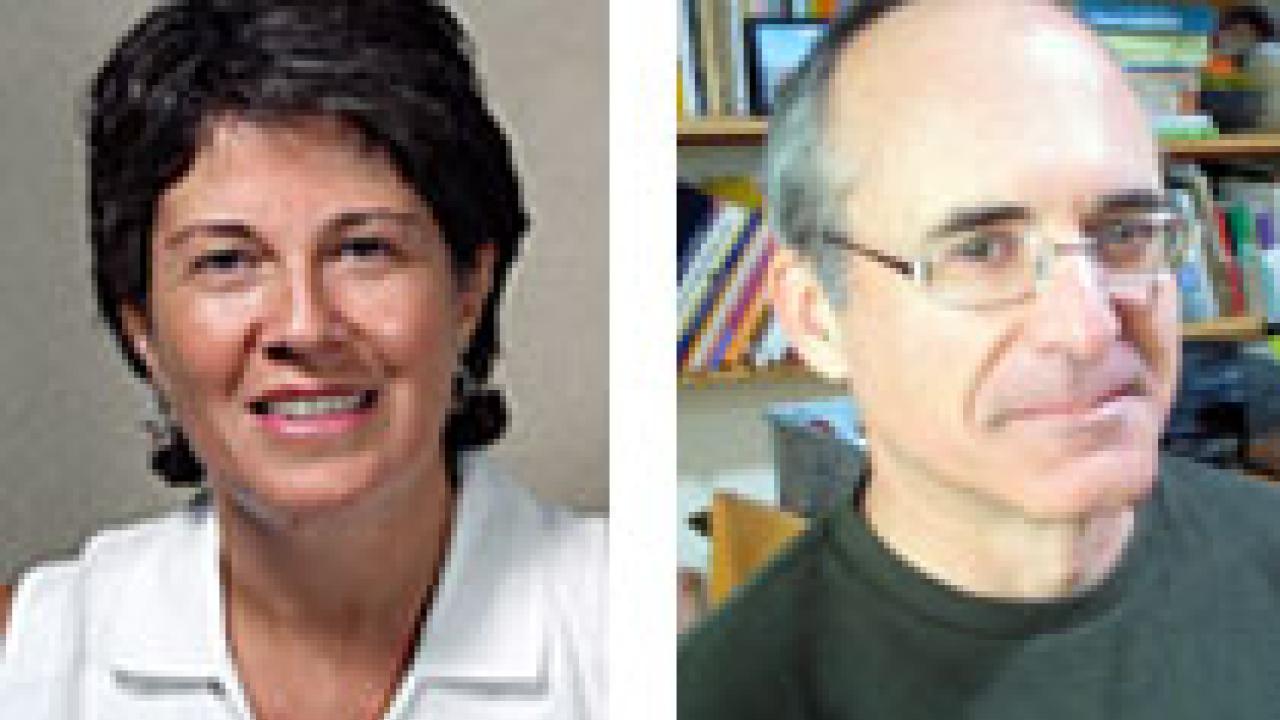Two UC Davis professors — a geologist who studies ancient climate change and an expert in the history of the Old West — have been awarded fellowships by the John Simon Guggenheim Memorial Foundation.
Each of the prestigious fellowships comes with a grant of about $40,000 in research support.
Isabel Montañez, professor of geology, uses fossils of animals, plants and soils to study how the climate changed thousands to millions of years ago. Understanding what happened when the planet went through previous dramatic climate change — at the end of the most recent ice age, for example — can give insight into what might be in store as the Earth faces accelerated climate change in the century ahead.
Montañez plans to use her award to spend time at University College Dublin, Ireland, learning techniques for reconstructing the levels of carbon dioxide in the ancient atmosphere from fossil leaves. Working with the Dublin botanists, she will test the techniques on fossil leaves from the Smithsonian Institution collection.
Montañez will also spend time at the University of Hawaii, Manoa, learning another technique for analyzing organic molecules in plants as a proxy for atmospheric carbon dioxide and relative humidity. She will apply this technique to the Smithsonian’s fossils, hoping to create a more accurate record of the climate 350 to 250 million years ago than has been possible to date.
Roughly 300 million years ago, Earth changed from a planet with ice caps, much like today, to an ice-free planet that saw the demise of rainforests.
Louis Warren is the W. Turrentine Jackson Professor of Western U.S. History in the UC Davis Department of History. He studies the history of the American West, especially the changing connections between people and nature, Native American history and the history of California. He is also co-editor of “Boom: A Journal of California,” a magazine that explores the past, present and future of California.
Warren will use the fellowship to complete his latest book, “A Hole in the Dream: the Ghost Dance and the Making of Modern America.” The book follows the lives of two men who met only once: Jack Wilson, the Nevada Paiute prophet of the “Ghost Dance” movement that swept Native American communities across the West in 1890; and James Mooney, sent by the U.S. Bureau of Ethnology to interview Wilson in 1892 in the aftermath of the Wounded Knee massacre.
Wilson’s prophetic vision resonated not just because of the loss of Indian autonomy, Warren argues, but also because of the severe economic depression of the time. Mooney’s report took on a life of its own, becoming the first official document to suggest that the policy of assimilation ran counter to American ideals of religious tolerance — a notion that would become official policy in the 1930s. By understanding the origins of the Ghost Dance and how the nation reacted to it, we can gain new perspectives on the making of modern America at the beginning of the 20th century, Warren said.
Montañez and Warren are among 180 scholars, artists and scientists to be awarded fellowships by the foundation this year.
Media Resources
Andy Fell, Research news (emphasis: biological and physical sciences, and engineering), 530-752-4533, ahfell@ucdavis.edu
Isabel Montanez, Geology, (530) 754-7823, ipmontanez@ucdavis.edu
Louis Warren, History, (530) 752-1633, lswarren@ucdavis.edu
